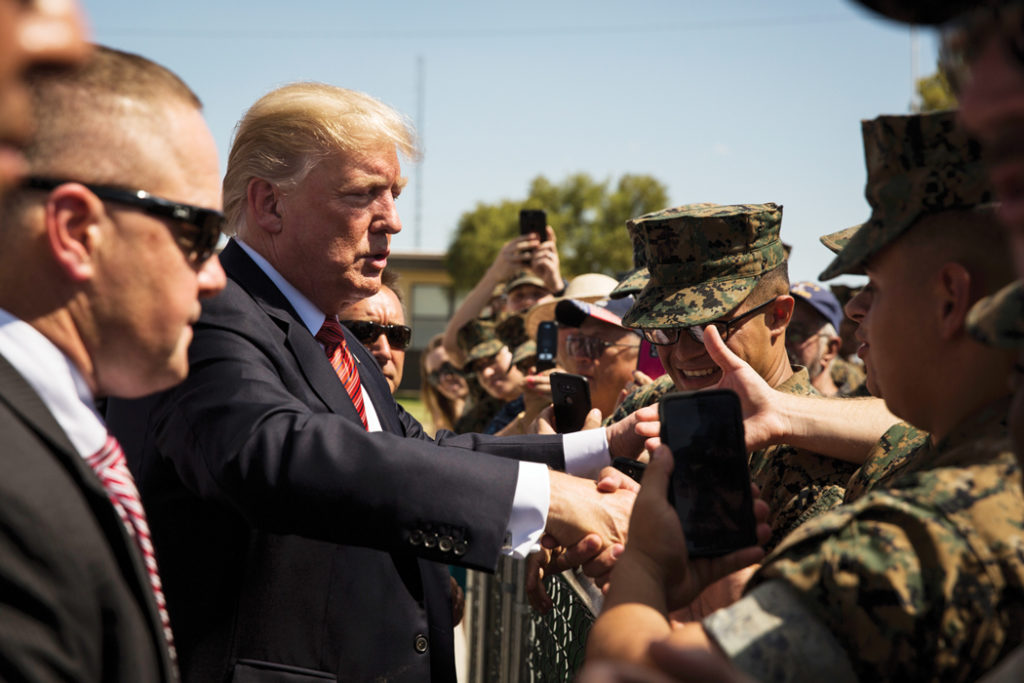
IMPEACHMENT, according to President Donald Trump, is a dirty word and it does not have anything to do with him. This, despite the growing clamor among Americans to remove Trump from office using this process stipulated in the U.S. Constitution as a way to make government officials who hold positions of public trust accountable to the people.
Article II, Section 4 of the U.S. Constitutions reads:
“The President, Vice President and all Civil Officers of the United States, shall be removed from Office on Impeachment for, and Conviction of, Treason, Bribery, or other high Crimes and Misdemeanors.”
The House of Representatives has been accorded by the Constitution the sole power to impeach an official, while it makes the Senate the sole court for impeachment trials. While the power of impeachment is limited to removal from office but also provides for a removed officer to be disqualified from holding future office. Fines and potential jail time for crimes committed while in office are left to civil courts.
According to the U.S. House of Representatives website, “impeachment comes from British constitutional history. The process evolved from the 14th century as a way for parliament to hold the king’s ministers accountable for their public actions. Impeachment, as Alexander Hamilton of New York explained in Federalist 65, varies from civil or criminal courts in that it strictly involves the “misconduct of public men, or in other words from the abuse or violation of some public trust.”
The House of Representatives History, Art and Archives website further explained that “Individual state constitutions had provided for impeachment for “maladministration” or “corruption” before the U.S. Constitution was written. And the founders, fearing the potential for abuse of executive power, considered impeachment so important that they made it part of the Constitution even before they defined the contours of the presidency.”
The History Channel outlines the impeachment process, noting that “impeachment doesn’t refer to the removal of an elected official from office, but rather the initial step in removing that official.”
The impeachment process:
“The process includes the filing of formal charges, which at the federal level is performed by the U.S. House of Representatives, and the resulting trial, which is conducted by the U.S. Senate. In the House of Representatives, an individual representative can initiate impeachment by introducing a bill, or the House can begin proceedings by passing a resolution. A simple majority of votes is enough to pass one or more articles of impeachment on to the Senate for trial. The Senate then acts as courtroom, jury and judge, except in presidential impeachment trials, during which the chief justice of the U.S. Supreme Court acts as judge. A two-thirds majority of the Senate is required to convict, and the penalty is usually removal from office, and sometimes disqualification from holding any future offices.”
CONGRESS now has an obligation and the power to make Trump accountable after the revelations of the Mueller report, detailing at least 10 instances the president may have abused his power with corrupt intent in obstructing justice. These are on top of the cases already filed in the judiciary involving campaign finance law violations of Individual Number One (Trump), cases against the Trump administration, corporations, foundations, and the transition team. Mueller has explained that the only reason why charges had not been filed against Trump was because of a Department of Justice policy prohibiting the indictment of a sitting president.
But even the Democrats who now have leadership in the House of Representatives are divided, with the more progressive members pushing for impeachment, while the old guards including House Speaker Nancy Pelosi choosing to slow down for political reasons.
But nobody is above the law, not even the president of the United States.
The History Channel chronicled how “some framers of the Constitution were opposed to the impeachment clause, because having the legislative branch sit in judgment over the executive might compromise the separation of powers they sought to establish between the three branches of government: executive, legislative and judicial.”
“However, Elbridge Gerry of Massachusetts, who would later serve in the House of Representatives and as Vice President under James Madison, noted, ‘A good magistrate will not fear [impeachments]. A bad one ought to be kept in fear of them.’”
Yes, President Donald Trump. No wonder you have been stonewalling all investigations because you fear the truth will come out. Otherwise, why even violate the oversight function of Congress as mandated by the Constitution?
Actions have consequences. Not even running for a second term will save you from your own self.
* * *
Gel Santos Relos is the anchor of TFC’s “Balitang America.” Views and opinions expressed by the author in this column are solely those of the author and not of Asian Journal and ABS-CBN-TFC. For comments, go to www.TheFil-AmPerspective.com, https://www.facebook.com/Gel.Santos.Relos




